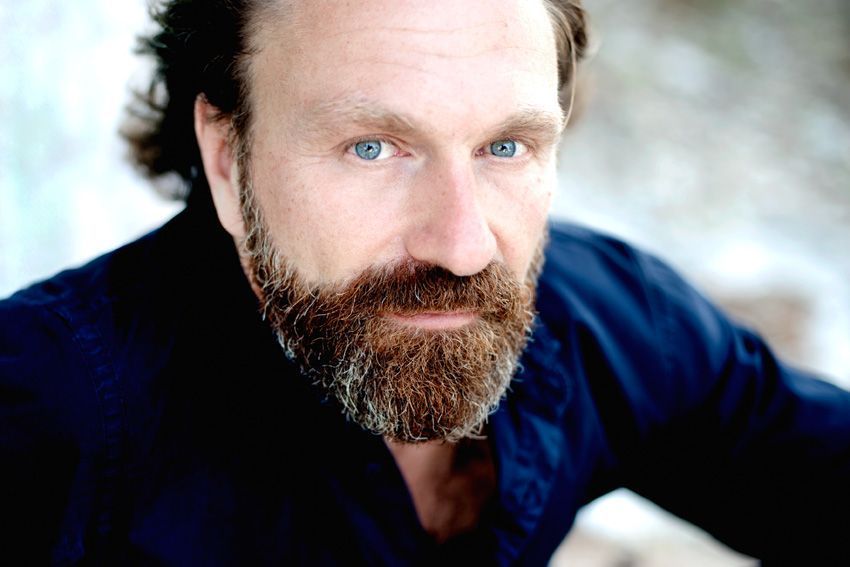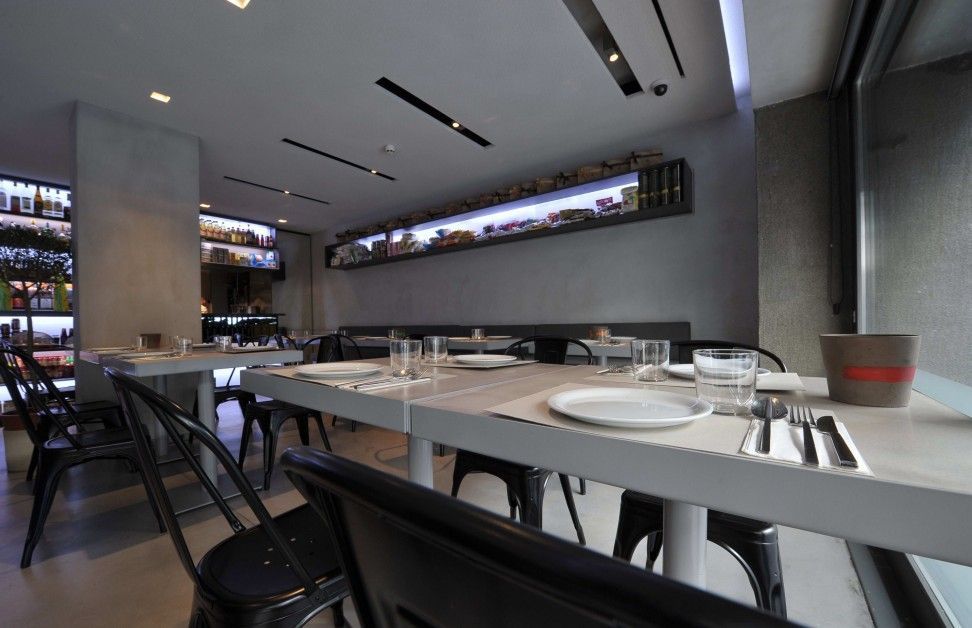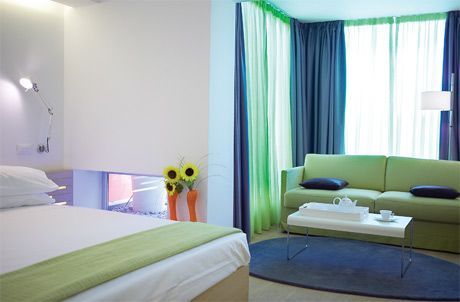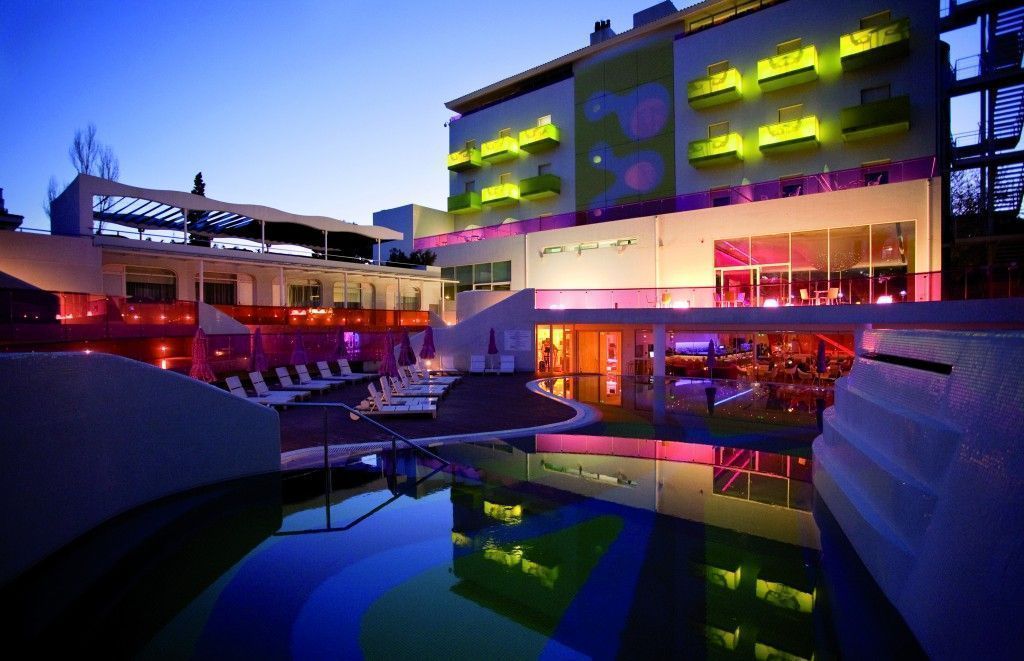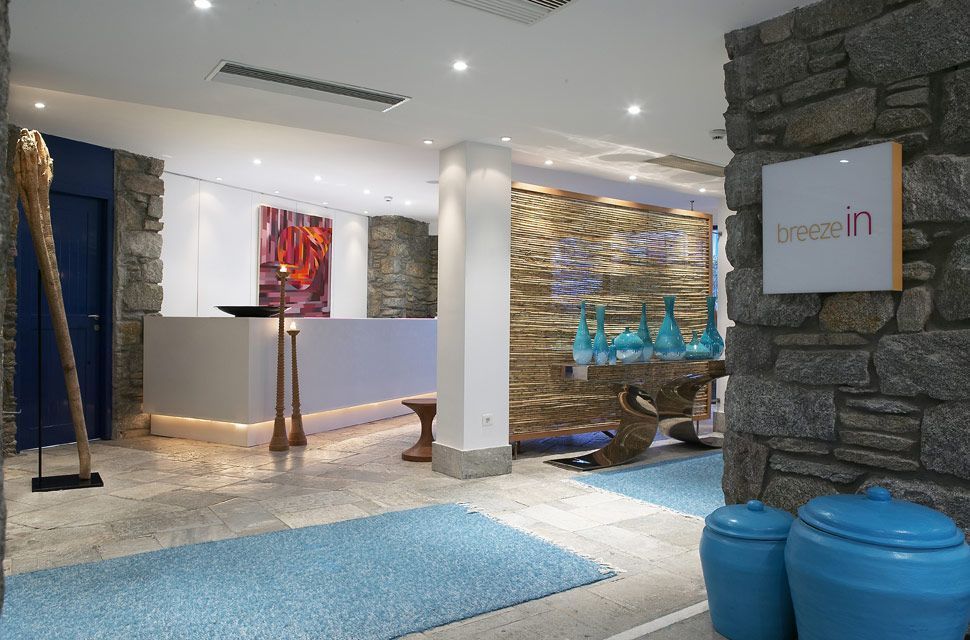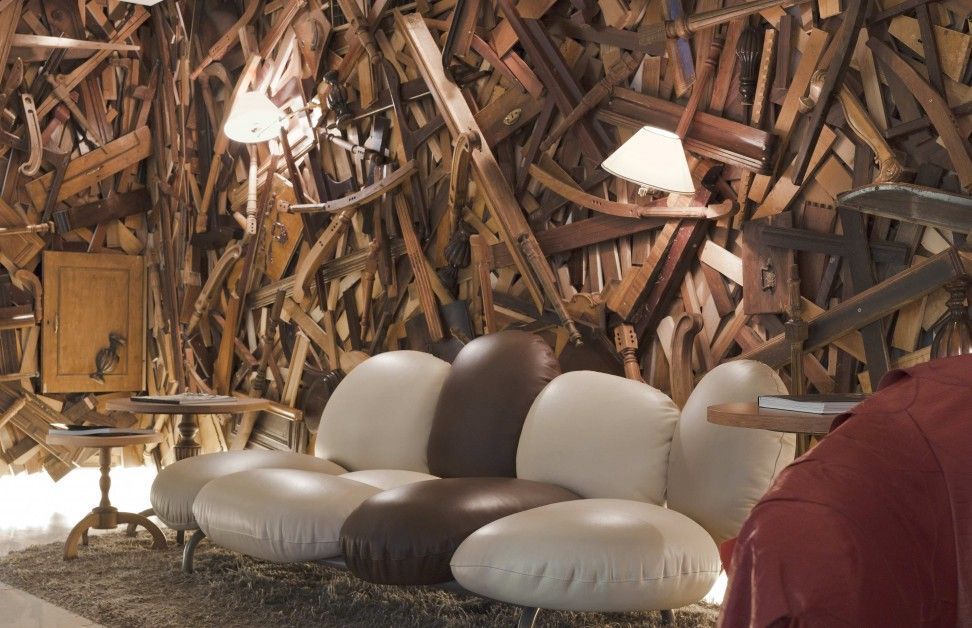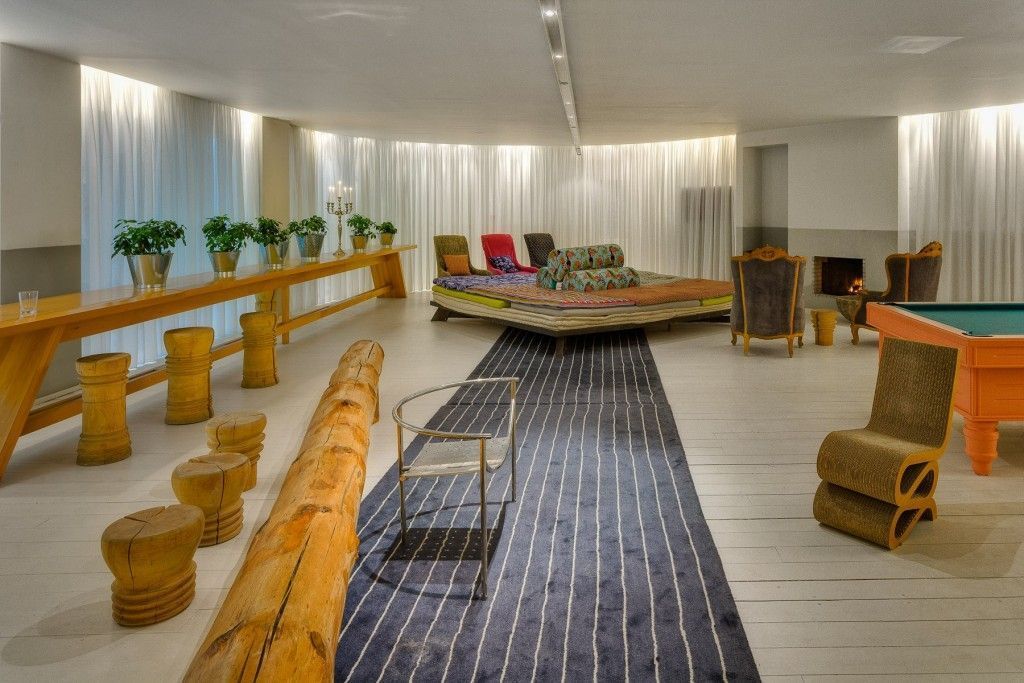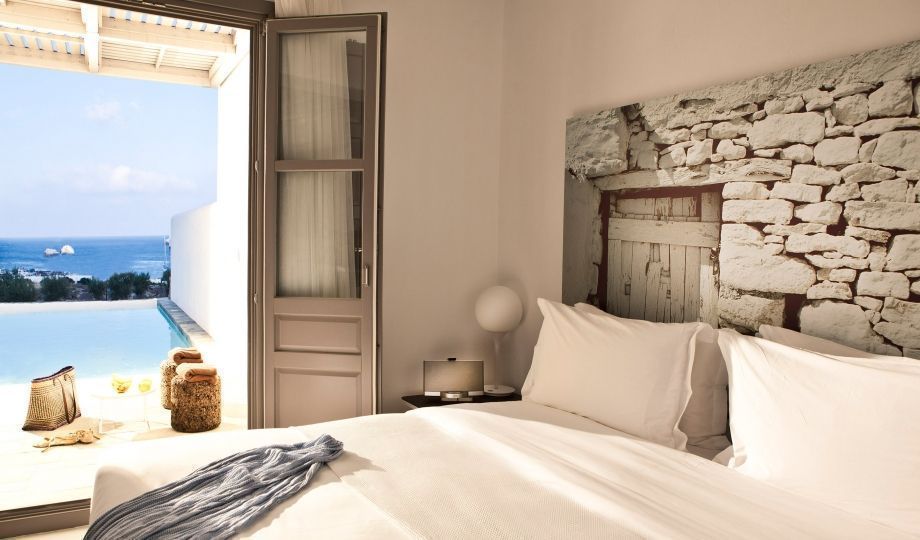Interview with Claus Sendlinger, Design Hotels Founder & CEO
GTP presents Claus Sendlinger of Design Hotels who outlines his insights on the “design hotel” concept
Claus Sendlinger is the founder and CEO of Design Hotels, a Berlin-based hospitality services company that markets some 280 independent hotels in over 55 countries, including Greece.
Mr. Sendlinger began his career in the travel industry in 1987 with the founding of an agency specializing in sport and music events. Only four years later Travel Trends, a tour organizer for high-end, authentic travel experiences, followed.
Mr. Sendlinger’s visit to Greece
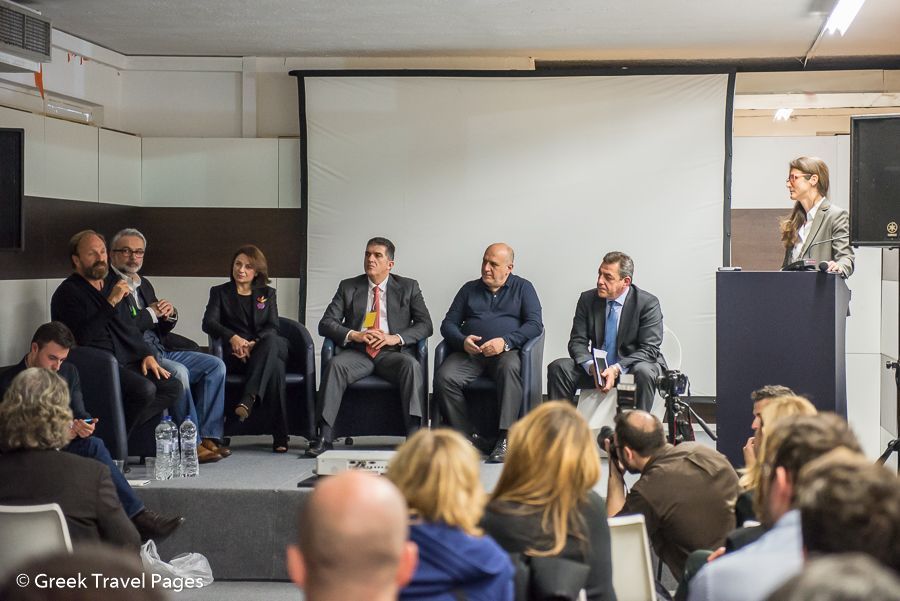
“Three Directions of a Successful Hotel Renovation – Design / F&B / Digital” event with special guest Claus Sendlinger, Design Hotels founder and CEO.
The president of Design Hotels was recently in Greece where he attended the “Three Directions of a Successful Hotel Renovation – Design / F&B / Digital” event, curated by Vassilios Bartzokas, Founder of Archisearch.gr, on the sidelines of the 100% Hotel Show.
During the event, he presented the philosophy and knowhow behind the successful Design Hotels brand.
“I think the whole thing started at the end of the 80’s. When you look back at the end of the 80’s there were really beautiful historic hotels or there were pretty lousy chain hotels. I never understood why there were so many ugly hotels out there. But there were a couple of bright people who were ready for different types of hospitality — people more from nightclubs or restaurants or bars — who helped to re-invent the industry,”
Event Video:
In 1993, Mr. Sendlinger established Design Hotels Inc. in Sausalito, California. What began as a small hotel cooperation with 10 iconic members, focused on communications strategies that went beyond traditional tourism marketing. With the growth of its worldwide creative network, lebensart global networks AG was born in Augsburg, Germany in 1998 and went public in 1999. In 2003, the company was renamed Design Hotels AG and in 2004 the headquarters was moved to Berlin.
Today, Design Hotels represents and markets a hand-picked collection of more than 280 hotels in over 55 countries. In November 2012, Sendlinger was honored at the European Hotel Design Awards for outstanding contributions to the industry. In January 2013, Design Hotels AG received the Special Award from one of the top German hospitality publications, AHGZ (Allgemeine Hotel und Gastronomie Zeitung).
In Greece, hotels in the Design Hotels portfolio include New Hotel, Periscope, Semiramis and Fresh Hotel in Athens; The MET Hotel in Thessaloniki; Mykonos Theoxenia and San Giorgio Mykonos on Mykonos; Anemi Hotel on Folegandros and Ekies All Senses Resort in Halkidiki.
GTP’s discussion with Mr. Sendlinger
GTP: How do you define a design hotel?
Claus Sendlinger: Let’s say it’s an application process and what we do first is look at the concept of the hotel to see if we believe that we can also help to operate it — what’s the destination, is it newly built, is it a conversion, how big the rooms are — and then we look at how the concept is going to be executed. There of course it starts with architecture and with interior design. If we believe that it can work then we look at the next part, which is the brand. Then we look how it is integrated in its destination. If it’s a city how it is integrated in its neighborhood — this is something we believe is becoming more and more important.
And last, but not least, what is the hotel’s approach and sustainability – from environment, electricity, heating, paper, waste, water etc.
Then we go into the negotiation for the contracts and the economics.
GTP: It is known that you have a strict selection process when scanning applications from properties wanting to benefit from your brand. How is the selection process carried out? What do the hotels need to have to make them attractive enough to the Design Hotels target group?
Claus Sendlinger: When we receive the applications we challenge on the concept and then look how it can be executed and then we go deeper to find out if this owner really understands all the needs of this, so then if we go together into the future.
It has a lot to do with the owner. It’s part of our marketing strategy, we have decided that it will be made by “the originals” and the originals are the owners and this is who we refer to. We are looking for people that can enrich our portfolio for everybody who is traveling within the portfolio.
GTP: Just how important is the design of a hotel room in contribution to a guest’s experience?
Claus Sendlinger: I think that has always been crucial and thanks to the bigger global awareness of design in general, we see that there is a huge movement with almost every new hotel having a much better design than if you look back 20 years ago. Design is much more individual and much more catering to a more affluent kind of customer. Design plays a crucial role in the guest experience.
GTP: What is your target group? What do your guests expect from a design hotel?
Claus Sendlinger: We have of course the business traveller who is looking for a room at a certain price, in a certain destination. Then there is the affluent traveller, who is not new at traveling, who travels a lot and is willing to spend a premium on all of the things creating a better experience for him. And it’s very international, they’re coming predominantly from the big metropolitan areas, which makes it a little bit easier for us as a small company to target them in their right environment.
Based on a customer study, the age group is between 35 and 50 but we see other segments to our portfolio. In some segments we see more younger people and in other segments we see more older people. So it’s not really the age anymore, I think it’s how you’re educated, where you grew up, who your friends are, and this is how you choose to choose a property. And then you see 21 year olds easily being next to 60 year olds, sharing the same likes.
GTP: Your brand represents over 280 boutique hotels in 55 countries and in cities such as New York, Paris and London. Nine hotels in your portfolio are located in Greece and in destinations including Athens, Folegandros, Halkidiki, Mykonos and Thessaloniki. Does the city where a hotel is located play a major role in the selection process?
Claus Sendlinger: No, not at all. You just need to manage expectations. For example, if you look at Semiramis versus New, it’s a different approach. Can we produce better through our channels and influence more to come to the New Hotel, yes. Is it more difficult for the hotel in Thessaloniki, yes. But still, you know, if you are building a hotel in Thessaloniki you need to work with somebody and then you need to choose who you believe shares your values the most and has potential of bringing the right customers. But in general, we don’t reject uncommon destinations. There are no limits.
GTP: Will any other Greek destinations be added to your portfolio?
Claus Sendlinger: I think that there is an opportunity on many islands. But it needs to be executed well.
GTP: What are the benefits for hotels that are included in your network? What does Design Hotels offer its members?
Claus Sendlinger: We have a broad tool kit of marketing communications, sales and digital services and depending on the life cycle of the hotel, we recommend to them to use this, or this strategy.
For example, for a hotel in a city with a high demand, they may want to curate their corporate customers well in order to have the right crowd coming to their property. And it’s better to spend the time on sales calls and meet the right corporate buyers and attend special events around the world.
Then there are smaller properties that don’t have the resources to send employees around the world to do this thing, and we say then, OK it’s better for you to spend your money on public relations and relationships with the media. Traditional off-line or with bloggers.
So, it really depends on each individual hotel but what we definitely can prove is that for every hotel, which is about to open, we can switch them on immediately.
So the media is following us, we have 1,200 most important writers around the world with who we are in frequent contact, we do press releases, go to individual writers and photo editors and chief editors around the world. We have the same relationship with the travel trade, and we have the same relationship with individuals all around the world who are looking for this kind of hotel.
If you have a new hotel and think that this can add value to your property, then we can get the message out and definitely help to put every hotel “on the spot”.
GTP: Can a hotel apply to be a member of your network while it is still in the early stages of creation or is membership limited exclusively to already established hotels?
Claus Sendlinger: We do accept hotels in the early stages of creation. I think that it’s crucial for the independent hotelier and we are the first ones breaking the rules because our competing business models, before we came to the market, were only accepting hotels that were open, in order to check them. We believe that the whole point for an independent hotel is to join a group like ours before it opens so that we can help it to communicate.
We go into the process to challenge everybody in the concept design, then we see how congruent and how serious they are about this. Do we have some opening of hotels which are disappointing and not exactly what we expected? Yes… Did it ever happen that at the end of the day the hotel opens, we said “no, we are not going to work with you”? Yes, this has also happened. But not even a handfull over the years.
GTP: Design-wise, what is in store for the future?
Claus Sendlinger: I think that design wise the opportunities are broader than they have ever been before, which is great. So we are out of the grey and beige — where 10 years ago everybody who was trying to be contemporary, didn’t really understand it, but wanted to be a part of it. I think now you can go from super radical to monk cell, concrete, something fluffy with a lot of pillows and a lot of colors. If you go through our portfolio you will find the one and you will find the other…
That’s why the concept is so important, because if we believe that conceptually it makes sense and there is a target group, and the customer we are talking about is looking for all these different experiences and not for the same experience, then there is no such thing as ‘what is the next trend in design’. Everything is possible.
My personal opinion is that a kind of a vintageness — but with sophisticated, intellectual currated pieces — is something which aspires to a relatively big influential premium paying target group.
So this is a good way to go in general and Greece has a lot of buildings which have fantastic bones. They just need to be interpreted right.
GTP: To close this interview, could you please “walk us through” the five stages of luxury you had referred to in your presentation?
Claus Sendlinger: I really love this subject because for so many years people were trying to find luxury and I believe in the decoding of it.
The first stage of luxury is when a lot of people enter the luxury market. It has very much to do with perception of classical luxury and it’s more opulent. It has to do with acquisition and value, where luxury is used to demonstrate wealth and define social position.
The second stage of luxury is more concept-driven, it is about discernment and worth. The customer focuses on buy brands, products and services that allow them to articulate higher levels of taste. Tradition, values, heritage, craftsmanship, and true quality are key factors.
In the third stage of luxury, emotion and experience play a major role. Customers are more concerned with the uniqueness of the experience on offer and the emotional impact that this can deliver.
In the fourth stage of luxury, it’s all about sustainability. How the business or the brand you are dealing with is dealing with the environment plays a more and more important role.
The fifth stage of luxury is not about the product, it’s only about the experience. What you rate for yourself. It’s intellectual and poetic. It’s a stage of passions and meaningful experiences.
So, from the first to the fifth stage it’s not a rating, they have different qualities. I think we have all shot through all 5 stages depending on our needs.
So when I want to go on a bachelor party with my friend I might go to Vegas and be in the first stage and then go from Vegas to the Grand Canyon and stay there 5 days for river rafting which is very much the fifth stage…

